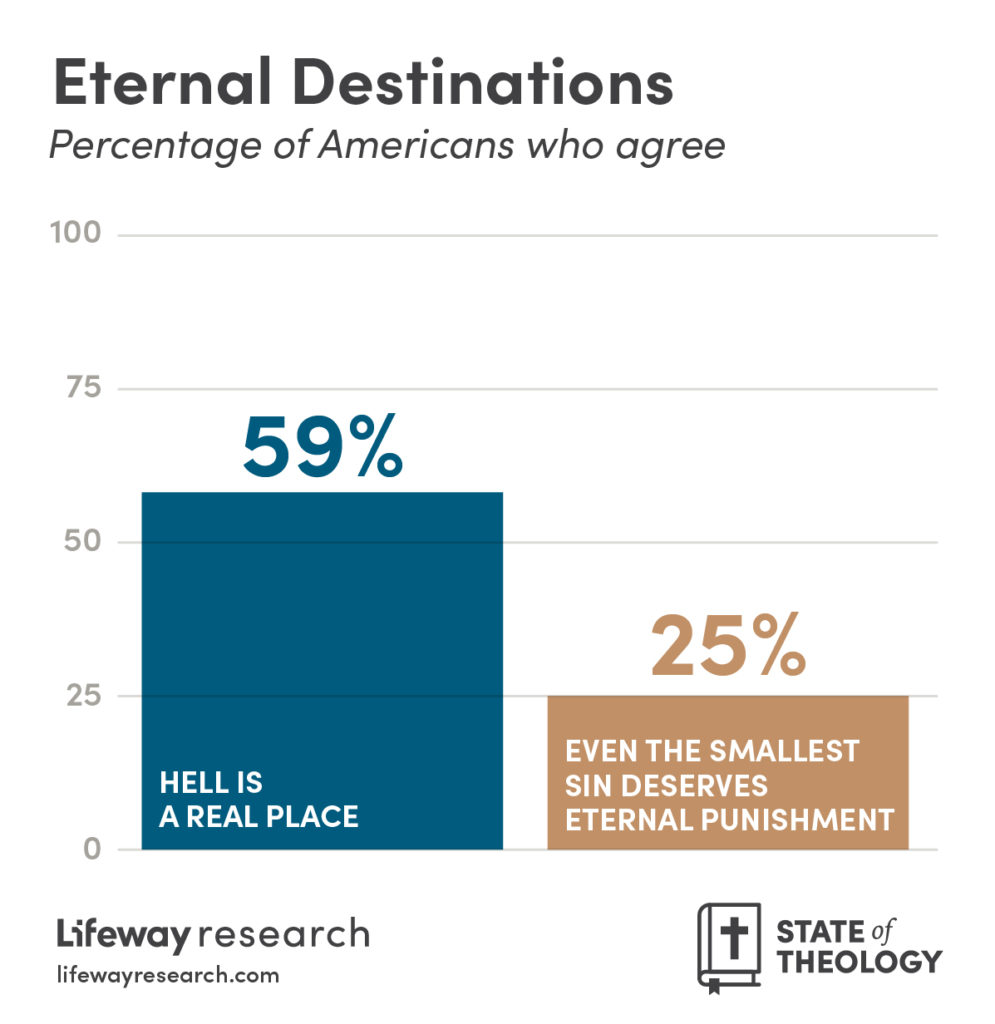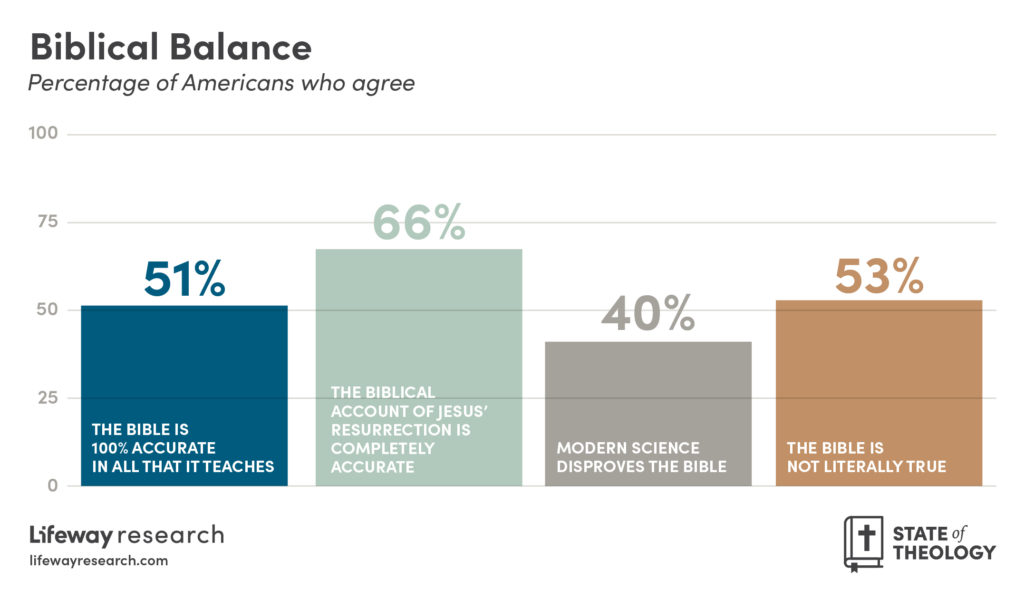Still, 3 in 5 Americans (59%) say hell is a real place where certain people will be punished forever, up from 56% in 2020 and 54% in 2018. A quarter (25%) also believe even the smallest sin deserves eternal damnation, consistent with the 26% from 2020 after climbing up in each State of Theology study starting at 18% in 2014.

“An interesting paradox exists regarding Americans’ views of sin and punishment,” said McConnell. “More than two-thirds of Americans believe everyone is inherently good, yet almost as many believe divine judgement will occur in the future.”
Biblical Balance
Americans tend to trust the Bible, especially what it teaches about Jesus, but may have some doubts in other areas.
Two in 3 U.S. adults (66%) say biblical accounts of the physical or bodily resurrection of Jesus are completely accurate. They believe the event actually occurred.
And Americans do not believe the Holy Spirit will contradict Scripture. More than 3 in 5 (62%) don’t believe the Holy Spirit can tell them to do something that is forbidden in the Bible.

In many ways, Americans are split on the trustworthiness of the Bible. Around half say the Bible is 100% accurate in all that it teaches (51%) and the Bible has the authority to tell us what to do (52%); however, 53% of Americans say the Bible, like all sacred writings, contains helpful accounts of ancient myths but is not literally true. And 40% say modern science disproves the Bible.
“As a society, views on the Bible probably best summarize how split Americans are when it comes to theology,” said McConnell. “Half see Scripture as dependable and authoritative while half see it as fiction. Higher numbers acknowledge the story it tells, but more than half also give weight to their personal opinions.”
For More Information:
- View the complete report
- Read the white paper
- Visit TheStateOfTheology.com
- Explore previous versions at LifewayResearch.com/StateOfTheology
- View trends over the years at LifewayResearch.com/TheologyTrends
This article originally appeared here.











